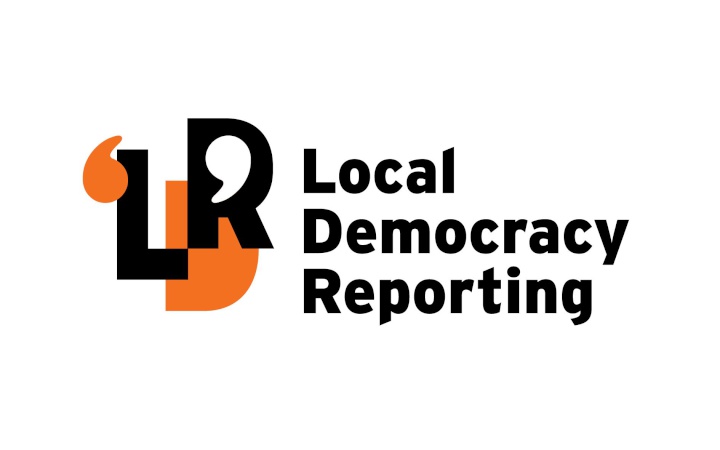The school toilet tax, rural-urban divide, and rates fairness were at the forefront of South Wairarapa District Council’s Long-Term Plan hearing.
The council received 218 submissions and an additional 600 signed letters, which would all be considered at deliberations next month.
The council’s consultation posed six questions over three decision areas which included alternative ways to distribute rates, operating the district’s water networks, and roading improvement priorities.
The 600 signed letters supported the lifting of the Uniform Annual General Charge from 21% to 28%, and did not support the introduction of a new district service rate to fund town facilities.
Instead, they asked for urban facilities to be funded 75% by urban ratepayers and 25% by rural.
Dylan Firth, a trustee on the Martinborough School Board presented to the council in the morning session.
He urged the council to create a remission policy for wastewater charges on educational facilities.
“Martinborough School currently has 27 toilets and because of this we pay approximately $30,000 in rates for wastewater charges.
“In 2023, that was $22,000, so we have seen an increase of 36% in the last year.
“For us that is a difficult charge to take on board.”
He said the school was funded through Ministry of Education grants which did not take into account the large wastewater charges in South Wairarapa.
“It’s a set grant, and if your council does something different, you’ve got to raise funds from somewhere else,” Firth said.
He said the wastewater charges were taking away from potential education resources.
“We shouldn’t be paying teachers out of fundraising, we should be doing that from the operational grant but we’re using operational grant money for rates."
He said the impact on wastewater services from students using the toilet at school was “negligible” as they would otherwise be using the toilet at home where rates were also paid.
Representatives from each of the council’s three community boards also spoke to their submissions, advocating for their respective towns.
Some submitters urged the council to stop working on vanity projects and stick to core infrastructure.
A theme of rates fairness came through in several submissions, with one urban ratepayer arguing they were subsidising rural ratepayers.
Meanwhile, rural submitters criticised the council for the large amount of rates they paid to subsidise urban functions.
Farmer Peter Smith said he was at the hearing to “make a stand” on the amount of rates he paid each year.
He currently paid $48,500 a year in district and regional rates and said he was “not going to pay any more increases”.
“You people probably have higher taxable incomes than me, and I’m not sure why I have to pay more rates than you,” he told councillors.
“Why am I subsidising the rest of the people in town based on that I own a farm on the edge of town?”
He said he made a loss on the farm last year and that rates rises “can’t carry on” like this.
Fellow rural ratepayers Dan Riddiford and Jim Hedley also spoke in support of fairer rates distribution.
Riddiford said there was “something seriously wrong with the system” and that there would be “no harmony in the rates space unless we have a genuine first principles rates review”.
Hedley said just because farms had a high capital value, it did not mean they made “high money”.
“If urban don’t want to pay [for urban amenities], then close all urban facilities down.”
Warren Woodgyer, who presented on behalf of Democracy Now asked council to consider the merits of reversing the 1989 amalgamation and reverting back to borough and county councils.
South Wairarapa District Council would deliberate on submissions at a meeting on May 14.
-LDR is local body journalism co-funded by RNZ and NZ On Air



 Gordon Campbell: On The Left’s Electability Crisis, And The Abundance Ecotopia
Gordon Campbell: On The Left’s Electability Crisis, And The Abundance Ecotopia NZ Police: New Zealand Police team up with Z Energy, NZTA and ACC to remind Kiwis to drive safe this Easter
NZ Police: New Zealand Police team up with Z Energy, NZTA and ACC to remind Kiwis to drive safe this Easter NZCAST: NZCAST Leads Ongoing Cross-Agency Collaboration To Break Down Barriers For Survivors Of State Abuse
NZCAST: NZCAST Leads Ongoing Cross-Agency Collaboration To Break Down Barriers For Survivors Of State Abuse Regional and Unitary Councils Aotearoa: Regional And Unitary Councils Back A Practical FWFP System
Regional and Unitary Councils Aotearoa: Regional And Unitary Councils Back A Practical FWFP System NZ Government: Stay Safe On Our Roads This Easter
NZ Government: Stay Safe On Our Roads This Easter YWCA: Global Push Back Against Gender Equality A Growing Crisis In Aotearoa
YWCA: Global Push Back Against Gender Equality A Growing Crisis In Aotearoa Te Pāti Māori: Ngarewa-Packer - Fast-Tracking Seabed Mining Ignores Māori Opposition And Environmental Precedent
Te Pāti Māori: Ngarewa-Packer - Fast-Tracking Seabed Mining Ignores Māori Opposition And Environmental Precedent


